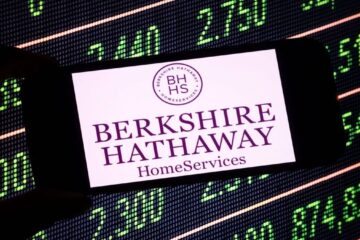Remember just a few years ago when everyone was spending more time at home, and spending their stimulus checks on new bath towels, bedding, and backyard furniture?
Peak pandemic, housing prices exploded, and home goods brands, did, too.
Home goods retailers like TJ Maxx, Wayfair, and Pottery Barn could barely keep enough inventory on hand to satisfy their customers’ nesting urges.
💵💰Don’t miss the move: Subscribe to TheStreet’s free daily newsletter💰💵
Now, with the pandemic behind us, and partly because of the sweeping tariffs that the Trump administration is implementing, sales in the home-goods space are settling like dust on an RH bookshelf.
Related: As customers struggle, Target adds affordable glam product line
Williams-Sonoma owns several brands in the home decor space, including Pottery Barn and West Elm.
Shutterstock
Previous experience with Trump tariffs prepared William-Sonoma for this round
Like many companies in the home furnishings and decor sector, many Williams-Sonoma (WSM) products are made overseas. The company also owns the brands Pottery Barn, Pottery Barn Kids, Williams-Sonoma Home, Rejuvenation, and Mark and Graham.
The company’s leadership says it has been preparing for tariffs for some time.
More on retail and bankruptcy:
Walmart store closing, auctioning off laptops and flat screen TVs Home Depot CEO sounds the alarm on a growing problemFamous restaurant files for Chapter 11 bankruptcy
During the Q3 2024 earnings call, shortly after President Trump was elected and was already talking about tariffs, Williams-Sonoma CFO Jeff Howie said, “Just want to remind everyone that it’s not our first time at this. We’ve always been a leader and proactively responded to changes in the trade environment…we’ve significantly reduced our China-sourced goods from 50% to 25% over the last few years. So exposure is significantly less than the last time in 2018 that we saw this activity.”
Related: Target makes controversial move to dodge high tariff costs
In the fall, Howie also said the company was prepared to reduce China sourcing even further if tariffs increased, as they just did.
President Trump this week proposed tariffs on several countries where Williams-Sonoma goods are made:
Vietnam: 46%China: 34%Taiwan: 32%India: 26%EU: 20%
Nevertheless, Howe noted the U.S. is already a major manufacturing hub for Williams-Sonoma, Inc. For example, much of the company’s upholstery is manufactured domestically at their facilities in North Carolina and Mississippi.
Lighting from the company’s Rejuvenation brand is manufactured in Oregon, and a large portion of the Williams-Sonoma assortment is produced domestically.
Williams-Sonoma earnings call
“I think you know we design most of what we sell, and that gives us the competitive advantage of being ahead and not being stuck in price wars with people,” said Williams-Sonoma President and CEO Laura Alber on the company’s most recent earnings call. “We also have long relationships with our vendors overseas and our own sourcing organization on the ground, which I don’t think any of our competitors have.”
“We have been anticipating these tariffs for some time now, details of which we didn’t know, of course, but we knew that China was going to be squarely in the sight lines,” she said.
“We’ve been moving goods away from China. We’ve cut it substantially. We intend to continue to cut it substantially. [We plan to] move things to areas that are cheaper and untariffed, easier to do business in, including moving some things back to the United States, which is exciting for us,” she said.
Alber doesn’t believe tariffs will affect margins and anticipates the company will be able to continue to offer the best quality at the best prices.
Related: Veteran fund manager unveils eye-popping S&P 500 forecast


